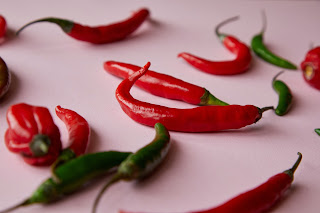Which turmeric combination should you choose?
Most people have heard about the benefits of turmeric at this point and probably about some of the popular combinations to increase bioavailability. Have you heard about the combination of Turmeric and fenugreek??
1. Enhanced solubility: Curcuminoids, including curcumin, the primary curcuminoid in turmeric, have poor solubility in water. However, the addition of fenugreek significantly improves their solubility, allowing for better absorption in the gastrointestinal tract.
3. Intestinal metabolism inhibition: Curcuminoids can undergo rapid metabolism in the intestine, leading to reduced bioavailability. Fenugreek contains compounds that inhibit the enzymes responsible for this metabolism, thereby preserving curcuminoids and enhancing their absorption.
4. Bile secretion stimulation: Bile, produced by the liver and stored in the gallbladder, aids in the absorption of fat-soluble compounds like curcuminoids. Fenugreek has been found to stimulate the secretion of bile, facilitating the absorption of curcuminoids into the bloodstream.
5. Anti-inflammatory properties: Both turmeric and fenugreek possess anti-inflammatory properties. When combined, they can have a synergistic effect in reducing inflammation in the gut, creating a favorable environment for the absorption of curcuminoids.
Let's now look at a couple of other common combinations used.
Turmeric and Black Pepper
Black pepper contains a compound called piperine, which has been shown to enhance the bioavailability of curcuminoids. However, when compared to the turmeric-fenugreek combination, there are a few notable differences:
Mechanism of action: Piperine in black pepper primarily works by inhibiting certain enzymes that metabolize curcumin in the liver and intestines. While this can increase the bioavailability of curcuminoids, it may also affect the metabolism of other medications or substances, potentially leading to interactions or side effects. Fenugreek, on the other hand, enhances solubility, delays gastric emptying, inhibits intestinal metabolism, stimulates bile secretion, and provides anti-inflammatory effects.
Specific benefits: The combination of turmeric and black pepper is effective in enhancing curcuminoid absorption, but it may not provide the additional benefits that fenugreek offers. Fenugreek's ability to slow down gastric emptying, inhibit intestinal metabolism, stimulate bile secretion, and reduce inflammation in the gut contributes to a more comprehensive approach to enhancing curcuminoid bioavailability.
Turmeric and Ginger
Turmeric and ginger are often combined for their potential health benefits. Ginger contains gingerols, which are bioactive compounds that may have synergistic effects with curcuminoids. However, when comparing this combination to turmeric-fenugreek, there are a few distinctions:
Bioavailability enhancement: Gingerols in ginger may have some potential in enhancing the bioavailability of curcuminoids, but the mechanism is not as well-studied or established as the combination of turmeric and fenugreek. Fenugreek offers multiple mechanisms, as mentioned earlier, that have been demonstrated to improve the absorption of curcuminoids.
Additional properties: Turmeric and ginger both possess anti-inflammatory and antioxidant properties, which can provide synergistic effects. However, fenugreek offers unique advantages, such as its ability to delay gastric emptying and inhibit intestinal metabolism, which can have a significant impact on curcuminoid bioavailability.
While turmeric-ginger and turmeric-black pepper combinations can be beneficial, the combination of turmeric and fenugreek stands out due to its well-documented and multifaceted approach to improving curcuminoid bioavailability. These factors work together to enhance the bioavailability of curcuminoids, making this combination superior to others in maximizing the absorption and potential health benefits of curcuminoids from turmeric. This is why I recommend the product Turmeric Forte for my patients. This is available in-office or through our website https://reidchirowellness.standardprocess.com





Comments
Post a Comment